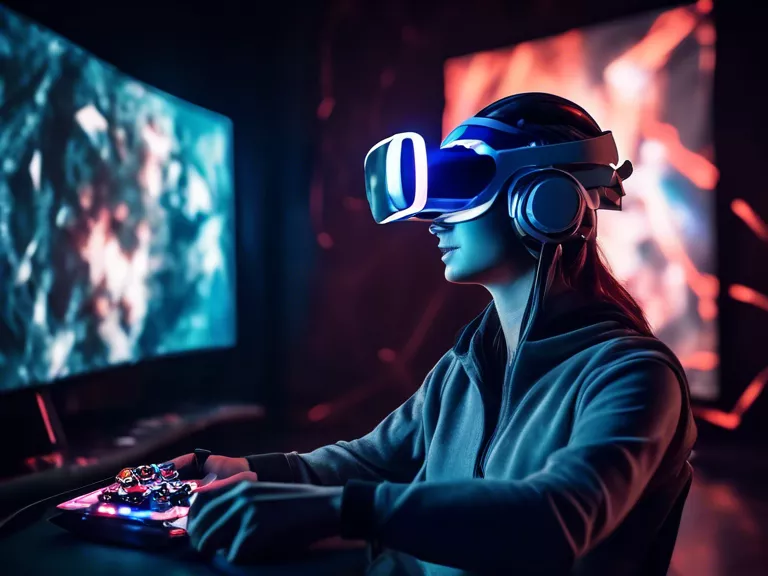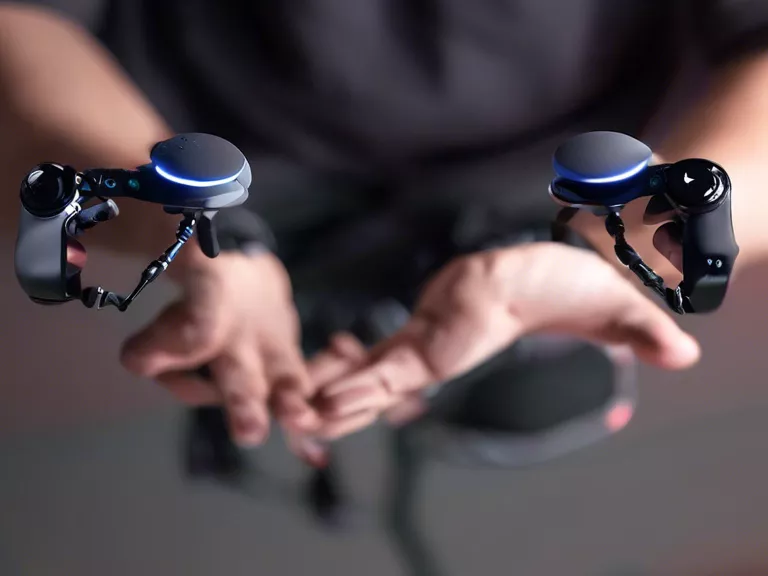
With advancements in mind-controlled gaming technology, the boundaries of reality are being explored like never before. From EEG headsets to brain-computer interfaces, the future of gaming is shifting towards a more immersive and intuitive experience. In this article, we'll delve into the potential trends and innovations in mind-controlled gaming that could shape the gaming landscape in the years to come.
The rise of mind-controlled gaming has the potential to revolutionize the way we interact with video games. By using brain waves to control in-game actions, players can immerse themselves in a truly hands-free gaming experience. EEG headsets, which measure brain activity, are already being used to control games and even help players improve their focus and relaxation levels. As the technology becomes more sophisticated, we can expect to see even more intricate and responsive gameplay mechanics.
One of the key future trends in mind-controlled gaming is the integration of brain-computer interfaces (BCIs) into mainstream gaming platforms. BCIs allow for a more direct and precise control over virtual worlds, opening up a whole new realm of possibilities for game developers. With BCIs, players can potentially control game characters, objects, and environments with nothing but their thoughts, creating a level of immersion that was once thought impossible.
Another exciting trend on the horizon is the development of AI algorithms that can adapt and respond to a player's brain activity in real-time. This could lead to games that can adjust their difficulty level based on the player's cognitive state, providing a truly personalized gaming experience. By combining AI with mind-controlled technology, developers can create games that are not only challenging but also highly engaging and rewarding.
As mind-controlled gaming continues to evolve, we can also expect to see more collaborations between game developers and neuroscientists. By incorporating principles of cognitive science and brain research into game design, developers can create games that are not only entertaining but also beneficial for players' cognitive abilities. This merging of gaming and neuroscience could lead to a new wave of educational and therapeutic games that can help improve memory, attention, and other cognitive functions.
In conclusion, the future of mind-controlled gaming holds immense potential for transforming the way we play and interact with video games. By pushing the boundaries of reality and merging cutting-edge technology with cognitive science, we can expect to see a new era of gaming that is more immersive, intuitive, and rewarding than ever before.
american-boffin.com
bfbchamp.com
democraticcoma.com
tigrepelvar.com
charpoles.com
derbywheelblazers.com
fansfocus.net
guildnow.com
hediyeteyze.com
isprimecdn.com
kiira-korpi.net
manutd24.com
mediumtylerhenry.com
mishanghai.org
savethreestrikes.com
smilesbydavis.com
10puntos.net
band-shirt.com
icelandtrails.com
paulmarioday.com
thefunnynanny.com
Dave Tries Ballet
Buon Grande
Criacao Sites
Perry Perkins Books
Writing Essay in AU
Ka Soku
Blood is Blood Movie
Eleanor Writes Things
The Happy Prince Beirut
Town of Witless Bay
Online Igrovoi Club
Trigeminal Neuralgia - Ronald Brisman MD
Chocolate City Burlesque
Advanced Electric Scooters
W Tougei
Breadboard Maniac
Takasu App



